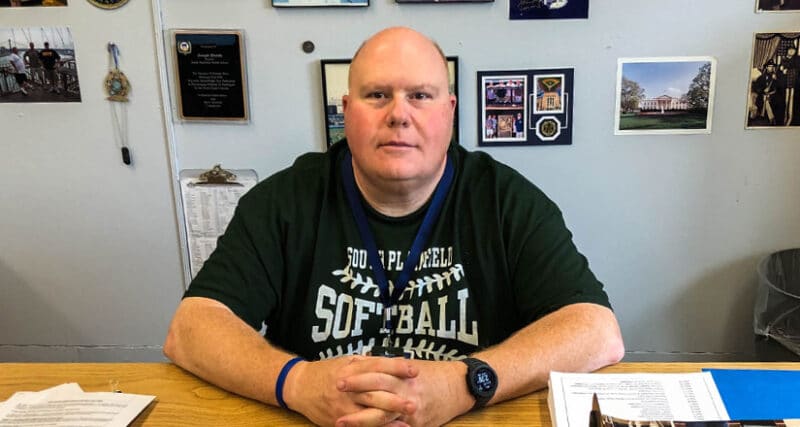Teacher Stories: Joe Blondo, South Plainfield Middle School, Eighth Grade, United States History
Absolutely, by no means are we perfect but this is bar none the greatest country in the world. You have so many freedoms and opportunities, and even on our worst day, we are still by far the best country with so many opportunities. I think it’s important that we teach both the good and the bad, like for example, obviously, the institution of slavery and the relocation and removal of Native Americans is not one of our highlights, but I think it’s very important that we teach that from a non emotional point of perspective because it’s who we are as a nation and it set the groundwork of who we are as a people. So, to not study history, to not study the period of slavery is a disservice to all those people who suffered through it, and to recognize them in their pain and suffering, and I think it’s a good entryway into other categories such as the civil rights movement. It’s important to acknowledge all of the good and the bad.
Right now, I’m assigned to teach American history, but I look at my job as more than just teaching history. I’m here to model and to prepare the students for high school and beyond. So, I would be hypocritical if I’m telling students that it’s important that you do their work and then I show up late, and that I don’t grade things on time. And if I say it’s important to be courteous and respectful, and then I use language that’s derogatory or demeaning or sarcastic, to the students, you know, I want them to be well rounded citizens and human beings and I’m a real big believer in in modeling that for my students. With me, it’s always ‘please’ and ‘thank you,’ always ‘good morning,’ always ‘good day.’ You know courtesy and respect go both ways. If I want the kids to treat me with respect I better treat them with respect.
The biggest disappointment of my life is actually what led me to becoming a U.S. History teacher. I had my heart set on serving with the United States Navy, and that would have meant the world to me if I was able to do that. I had my heart set on military service since I was probably, I’d say, at least 12. I read books about the Navy in World War 2; I read books about naval aviation. I lived and breathed it. I wanted to be a fighter pilot so bad that I knew that was what I was going to do. But just when I finally got to live that dream and I joined the Navy, by the end of basic training, I was told that I was being sent home, because it was discovered I had Osgood Schlatter Disease, which was causing pain in my knees. I was devastated when they told me. My dream of being in the military was over.
I could have gone one of two ways after that. I could have said, Okay, well then, the heck with everything and just basically given up on life, or I could have done what I did, which is go back to school to become a history teacher. I’ve always loved history, so I thought, ‘Maybe it’s a sign from above that maybe this is what I’m supposed to do.’ My philosophy is, when God closes one door, there’s always another door to try to find an opening. I wasn’t meant to serve in the military. Maybe I was meant to be a teacher and influence kids. And here I am, and I am very happy.
- Interview by Gregory Andrus





